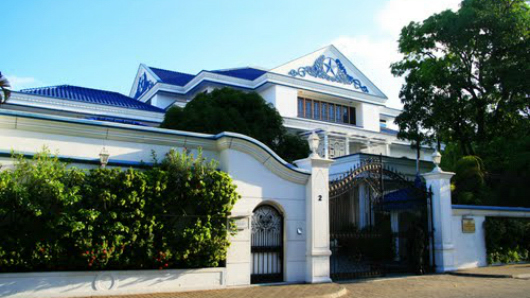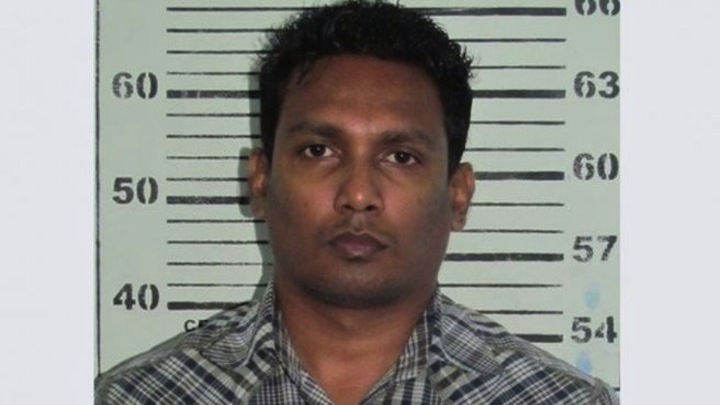Writing in the 1970s, anthropologist Clarence Maloney remarked that religion in the Maldives was limited to “washing, fasting and praying”.
What he meant is similar to what MB Hooker observed in the Southeast Asian Muslim populations – Islam was characterised by “a ‘non-literally’ Muslim culture”, limited largely to practice without much theorisation and philosophising.
However, since the 1980s – and especially since the year 2000 – the most spectacular change in our culture has been the conscious appropriation and questioning of received religious doctrines and practices. Processes associated with modernisation and mass education have enabled this never-ending fragmentation of discourses, interpretations, and different visions at a larger scale.
This is what Eickelman and James Piscatori described as the “objectification of Muslim consciousness” that has now swept the whole Muslim world. Maldives is no exception to this.
Fragmentation
It was in this emerging context of fragmented religious discourses and different religious interpretations that the regime of President Maumoon Abdul Gayoom suppressed both those who embraced Salafi interpretations of Sharia and those drawn toward more pluralist Sharia.
It is in this context – now characterised by extreme political and social uncertainties – that one of the most prominent Maldivian religious scholars, Dr Afrasheem Ali, was murdered in October 2012. It was also in this same context that my friend, journalist, and human rights activist Ahmed Rilwan disappeared six weeks ago.
None of us yet knows the truth about those tragedies. But what we know is that both have significant religious context. Afrasheem had faced harassment and assault on several occasions because of his religious views. Similarly, Rilwan – once a Salafist – received threats because of his criticisms of certain understandings of Sharia.
More importantly, the murder and disappearance sends a chilling message to the rest of us – religious disagreements cannot be tolerated.
The fact of the matter is that, however small and homogenous, ours is now a society characterised by pluralism. We cannot wish away these disagreements on deep questions of what the good life is.
In need of a new moral order…
But ethical and religious disagreements do not mean there is no possibility of a moral order for collective life that we could come to agree upon.
Such a moral order must be based on political and moral principles that we all can – or should – value, i.e. liberty, equality, and peace. These are also among the higher values that Islam stands for.
In this moral order, there should be a maximum and genuine role for religion. It is not a secularist moral order where religion must be privatised, or religion is seen as something that will just disappear with the rise of ‘rationality,’ science, or modernisation.
In my view, both the Maldivian Democratic Party and the Dhivehi Rayyithunge Party/Progressive Party of Maldives have failed to articulate a vision of democracy that genuinely respects the place of religion in democracy.
Officials of both governments have characterised religious people as somehow irrational or pre-modern. Both governments have tried to control or co-opt religion in their instrumentalist and ideological narrowness.
A democracy based on such a moral order does not make a fetish out of ‘secularism’ or ‘separation of religion from the state’. Secularism is not about separation as such. It is about certain moral ends, including liberty and equality.
Sometimes separation and at other times accommodation will promote those values. There is no a priori fixed solution (such as “a wall of separation”) to the relationship of religion to the state in order to achieve those ends.
Context is everything. And contextual reasoning is the way forward.
Thus the moral order the Maldives need is not that of the mainstream secularism we find in France, Turkey, or sometimes even the US – where the value of religion and the rights of religious people are not fully recognised.
In this new moral order, religious parties and religious scholars must have an equal place in the public sphere as their secular counterparts. Laws and policies based on religious values must have a place too. How else could it be, unless we think we can simply separate our religious selves from our political selves?
Only a ‘thin’ liberal conception of citizenship based on a ‘thin’ understanding of epistemology would think moral truth is somehow ‘secular’.
…for a new imagined community
To be sure, in concrete terms, this moral order means freedom of religion cannot be denied – citizenship cannot be denied on religious grounds. How can anyone of us in all religious honesty deny this basic and God-given right?
Even Gayoom, who was the architect of the prevailing insular nation-identity based on ‘sattain satta muslim quam/100 per cent Muslim nation’ had to acknowledge that the denial of religious freedom in the Maldives was in spite of Islam:
The real essence of Islam…is that it is non-discriminatory. Its tolerance of other beliefs and religions is clearly established in the Holy Quran…
We Maldivians…hold freedom of belief as sacred and we abhor discrimination…on any grounds whether of creed, colour or race. It is only that we are such a homogenous…society based on one national identity…that we are convinced that the preservation of this oneness in faith and culture is essential for the unity, harmony, and progress of the country.
Gayoom, Address at the Opening Ceremony of the Seminar on ”The Calls for Islam in South and South East Asia’, 1983
In other words, a universal precept of Quran was overridden by his attempt at creating a homogenous ‘imagined community’. While this imagined community had been homogenous, the real community has undergone fragmentation of religious discourse.
As a result, the national self-understanding that Gayoom – still leader of the country’s ruling political party – created is now being subjected to vigorous contestation from all fronts – both religious and secular. That is why we are in need of a new moral order for a new imagined community.
Why Afrasheem and Rilwan matter
Perhaps one of the biggest immediate challenges for a new moral order in the Maldives is related to the tragedies of Afrasheem and Rilwan.
Besides our human concern for them, the need for a new moral order is the long-term reason why we all must be concerned to find truth about them. That is why everyone should be calling for greater accountability of the government in these cases.
That is why I support the #suvaalumarch taking place tomorrow afternoon (September 19) in Malé.
For the future of democratisation in the direction of this new moral order is contingent on seeking truth and justice for Afrasheem and Rilwan.
Azim Zahir is a PhD candidate at the Centre for Muslim States and Societies, University of Western Australia.
Likes (0)Dislikes
(0)Dislikes (0)
(0)
 (0)Dislikes
(0)Dislikes (0)
(0)
